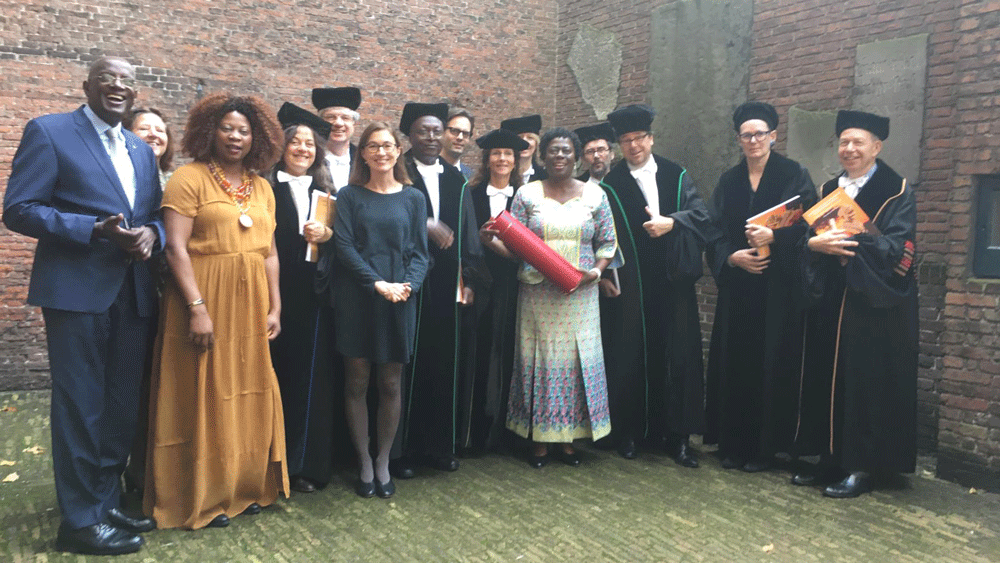
29 Nov Dr. Cissy Kityo successfully defends thesis on HIV drug resistance in sub-Saharan Africa
A recent trip to Amsterdam is one Dr. Cissy Kityo won’t soon forget.
The Ugandan HIV physician and researcher successfully defended her thesis, Emerging HIV Drug Resistance in sub-Saharan Africa: Effects on Treatment Outcomes at the Agnietenkapel on Tuesday, November 12.
The day prior, she presented her work as part of the HIV Drug Resistance symposium held in her honor, which featured an international panel of experts in the field. One of the presenters has a particularly close connection to her: he is a long-time patient of hers who has since become a global advocate for HIV drug resistance.
Moses “Supercharger” Nsubuga developed resistance to his first-line HIV treatment, became very sick and was taken to his ancestral home to die. Dr. Kityo recognized the symptoms as HIV drug resistance and placed Moses on second-line treatment, allowing him to return to good health.
For Dr. Kityo, completing her PhD on drug resistance was a natural fit. She was working at the Joint Clinical Research Centre (JCRC) and collaborated with PharmAccess during one if its earliest (2002) access to HIV treatment programs. It was an obvious choice for Prof Tobias Rinke de Wit, principal investigator of HIV drug resistance in Africa, to invite Dr Kityo in 2007 to join the so-called Pan-African Studies to Evaluate HIV drug Resistance (PASER). During these studies, Dr Kityo became Prof Tobias Rinke de Wit’s PhD student.
Around the year 2012, the PASER provided 25% of all data to the World Health Organization on HIV drug resistance.
“Research on HIV drug resistance is important because if it is not monitored and addressed, it affects the effectiveness of HIV treatment programs around the world and could prevent the international community from achieving the HIV epidemic control by 2030,” said Dr. Kityo.
Despite having completed her PhD and publishing more than 25 peer-reviewed publications on the topic, Dr. Kityo shows no signs of slowing down.
“I will carry this work forward with the team because there are still many research questions that have to be answered,” she said. “Even during this visit to Amsterdam, we already discussed a new collaboration with AIGHD: a clinical trial to evaluate long acting antiretroviral drugs that may be given every 2-6 months. This would improve adherence and may ensure effectiveness of treatment for patients around the world.”
Congratulations on this important achievement, Dr. Kityo!
